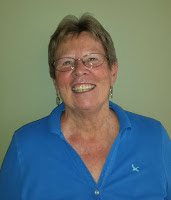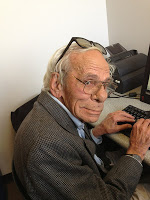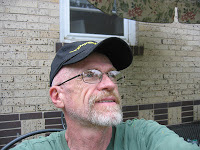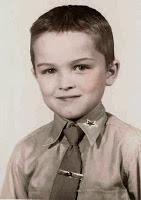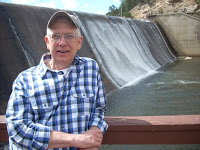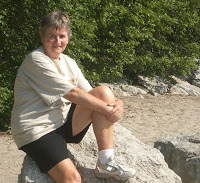The Plaza Theater in El Paso is one of those 1930’s iconic theaters built to immortalize cinematography. Entering into the Spanish colonial building festooned with ornate furnishings, red velvet curtains and ornate plasterwork propelled me to a world I could only imagine. After all, I lived in a 3-room adobe with no indoor plumbing. As I sat marveling at the ornate proscenium arch before me and the overhead ceiling with astronomically correct twinkling stars and projected gauzy clouds, I felt the awe of peasants in the Middle Ages when they walked into Gothic cathedrals radiating light through stained glass rose windows. I was on a school-sponsored trip to watch John Wayne’s rendition of Texas’ war of independence at the Alamo. When the camera panned the battlefield depicting Mexican soldiers falling in a barrage of bullets, my peers applauded and yelled enthusiastically at the carnage. After all, we were fellow Texans, disdainful of the Mexican hoard. It did not matter that the Mexicans spoke our language and looked like most of us. During the climactic scene when the small band of Texas insurgents were overwhelmed by the formidable Mexican army of Santa Ana, I felt strangely uncomfortable although I did not really understand why. Later, when I asked mi papá who at that time had not yet become a naturalized citizen to explain, he replied that films do not always depict history accurately, thereby challenging my vision of truth.
Throughout the years, being a child of immigrant parents had thrust me into a spiral of doubt. Although I ate beans and tortillas at every meal and considered La Virgen de Guadalupe my spiritual benefactress, the last thing I wanted to be labeled as was Mexican. Being accused of being one invariable resulted in angry words and school yard brawls. After all, the Hollywood stock character of Mexicans as poor and uneducated at best, corrupt and violent at worst, nettled my consciousness. I did not question this perception until years later when mis padres took me back to their native Jalisco in an effort to show me another facet of my identity. They, the Mexican people I encountered, did not fit the cartoonish stereotypes of sarape-draped men leading donkeys by the halter nor rebozo-cocooned women selling calla lilies at the marketplace. The relatives and human beings I met were poetic, cosmopolitan, and generous in their affection for me. My Tía Concha slaughter a hen from her garden and prepared a mole redolent with spices that left me lapping up the bowl with delight that evening. Noting my gustatory seduction, she again prepared the same complex dish the following day. Years later, I would recall a similar awe when after being legally deaf for years, I again heard after the advancement of deaf technology. Thus, I returned back home with a new-found appreciation for being Latino. Endlessly I played the rancheros/ bolero recordings of Javier Solís with his liquid brown eyes, bronze face, and moustache draping his pouting lips. I sat at the edge of my seat watching movies of Cantinflas, internalizing his typical we-live-to-laugh Mexican philosophy. I immersed myself in the national consciousness of my parents’ homeland while simultaneously remaining firmly rooted in my pride of the red, white and blue. I became a scion of two cultures, recognizing that my soul was forged of the silver of Taxco as well as in the coal of West Virginia. Thus, I started to reject the stereotypes that had calcified in me over a lifetime, to reject the scurrilous labels and images I had internalized, as a Mexican, as an American, and as an American of Mexican descent, and to drink water made sweet in earthenware cantaros even as I indulged in Oscar Mayer hotdogs.
Because The Alamo became a lesson for me about illusions, ultimately I recognized that even darkness can lead to vision. However, to see, it was important that I first embrace my blindness. Indigenous peoples have consistently been stereotyped. The oversimplified and inaccurate stereotypical depictions of identities run the gamut from noble savage to ignoble barbarian and from Indian princess and squaw pejorative to wise sage. The stereotypical influences are so pervasive many Native peoples today are actively pursuing a more accurate understanding of themselves and their cultures in an attempt to reject the internalized effects of these misconceptions and labels. Many are reclaiming their native identities, recognizing they are the people; they are human beings, not cigar store wooden Indian caricatures. Likewise, we gay and lesbian people struggle to define who we are as we confront the insidious stereotypes foisted about us by media even in this era of social progress. We struggle to reject the offensive humor and defamatory stereotypes. I weary of the sociopathic, effeminate and butch, dangerous and predatory, immortal, suicidal labels queer folk are subjected to. These stereotypes only foster hatred and prejudice. Like Native peoples, we too have become caricatures, metaphoric cigar store gays and lesbians. Of course, I understand that the media stigmatizes many groups from repressed Brits to evil Mexicans, and from racist white Southerners to doddering elders. After all, stereotypes are invaluable because audiences have been conditioned to expect certain behaviors from stock characters. The point is that audiences willingly accept established archetypes in place of genuine character development, thus freeing up remaining frames to more interesting and adrenaline-pumping scenes. Thus, unfortunately the cigar store wooden Indian, in its many manifestations, persists.
Over time, I have learned to savor the diversity and complexity of the human experience. Yet, false depictions continue to drift through the air like the stench of something unspeakable. Most recently, the vitriolic venom being spewed like explosive diarrhea by a “You’re fired” candidate and his followers about people who are like you and me angers me, but in my anger I find the courage to speak up and pull back the fog of blindness, the silence of deafness. I will not sanction cigar store wooden icons of any of God’s creations. I will not be a cigar store Latino or gay wooden icon.
The adage a picture is worth a thousand words is heartening. One balmy fall day in l960, I walked into a theater intent on immersing myself into a world I little understood. Several hours later, I emerged transfixed and transformed, pondering the implications of what I had witnessed. Although we have all been invited to attend a banquet in which all forms of delights, both sweet and savory, are ladled unto our bowls, unfortunately too often we pull back from the table because we fear the unknown. And in fearing, in withdrawing, and in condemning, we deny ourselves the wonders of an elaborately prepared spicy mole, made rich by old world and new world hands. Life is a journey in which we need not behold others nor ourselves reflected on the prism of cigar store wooden misrepresentations.
© August 19, 2016, Denver

